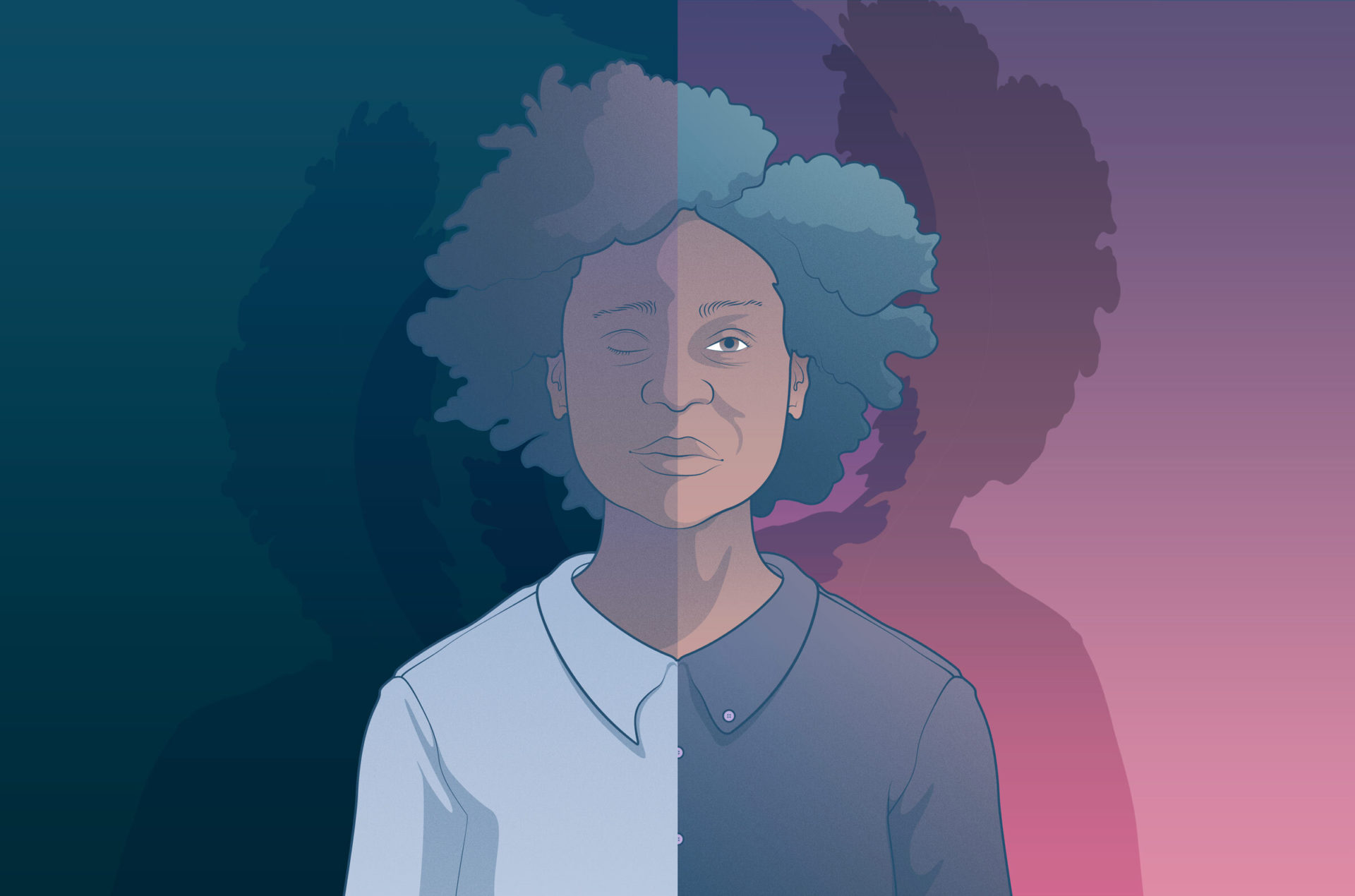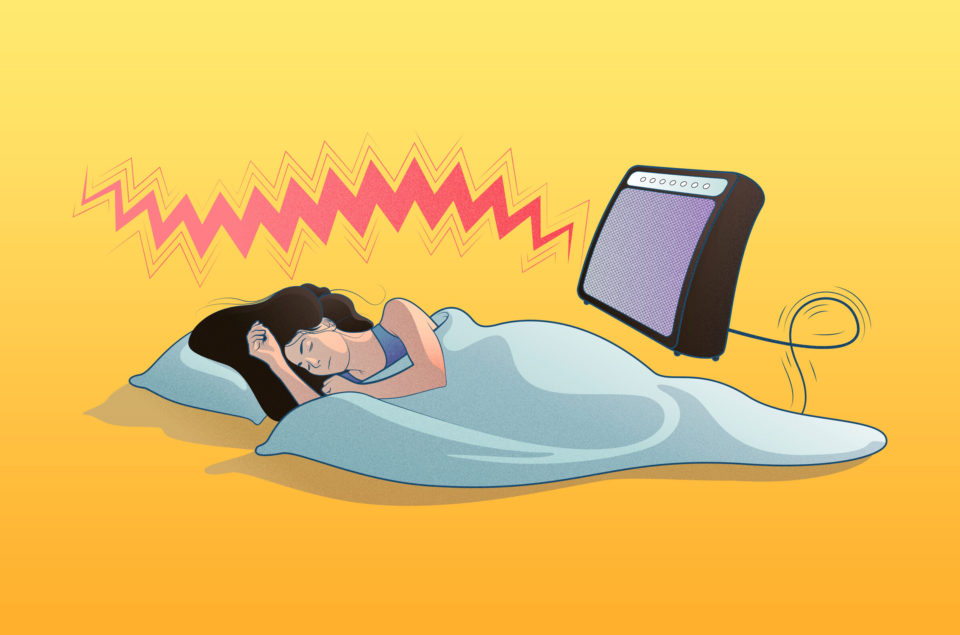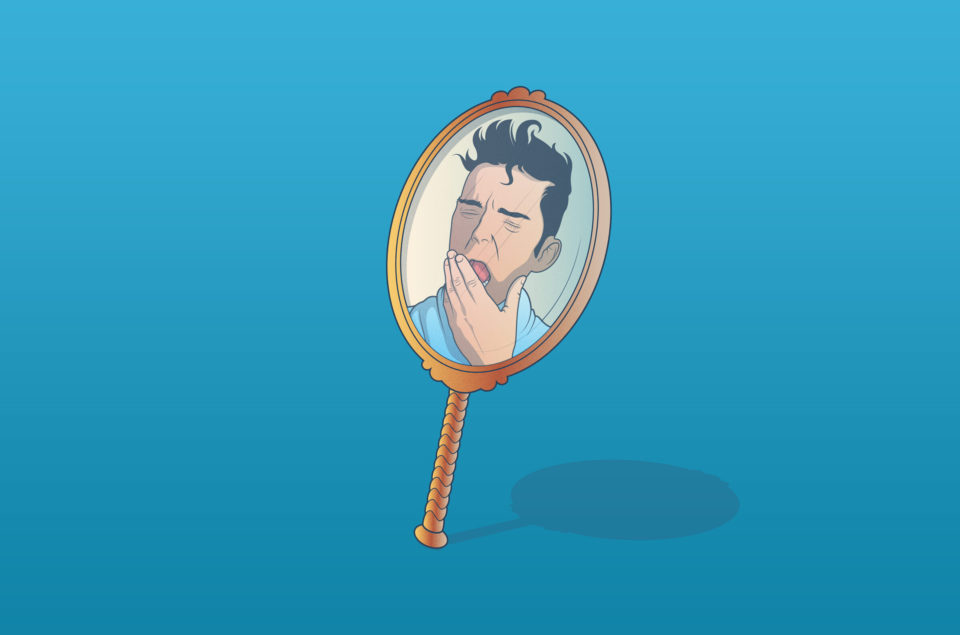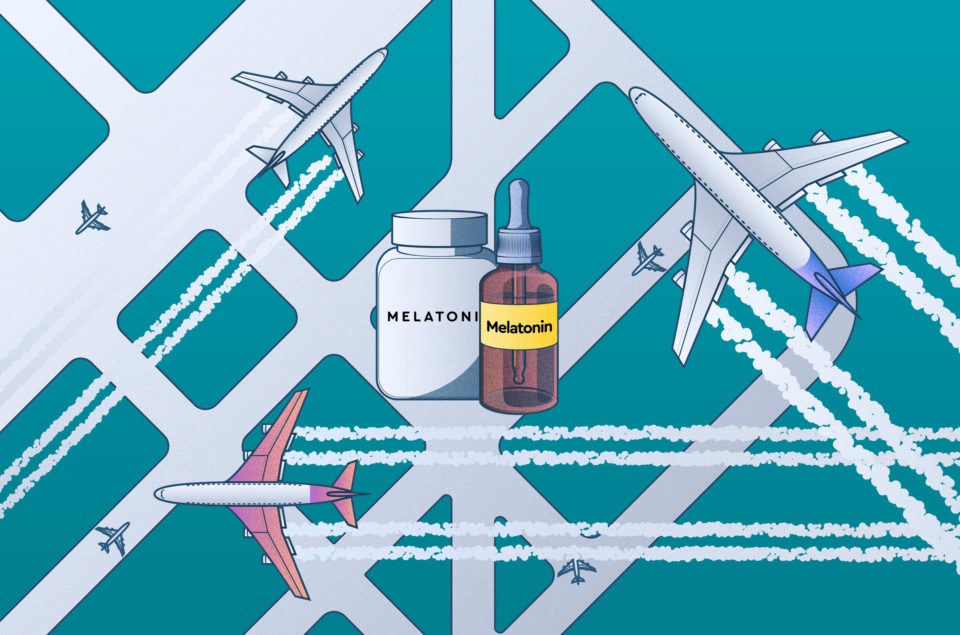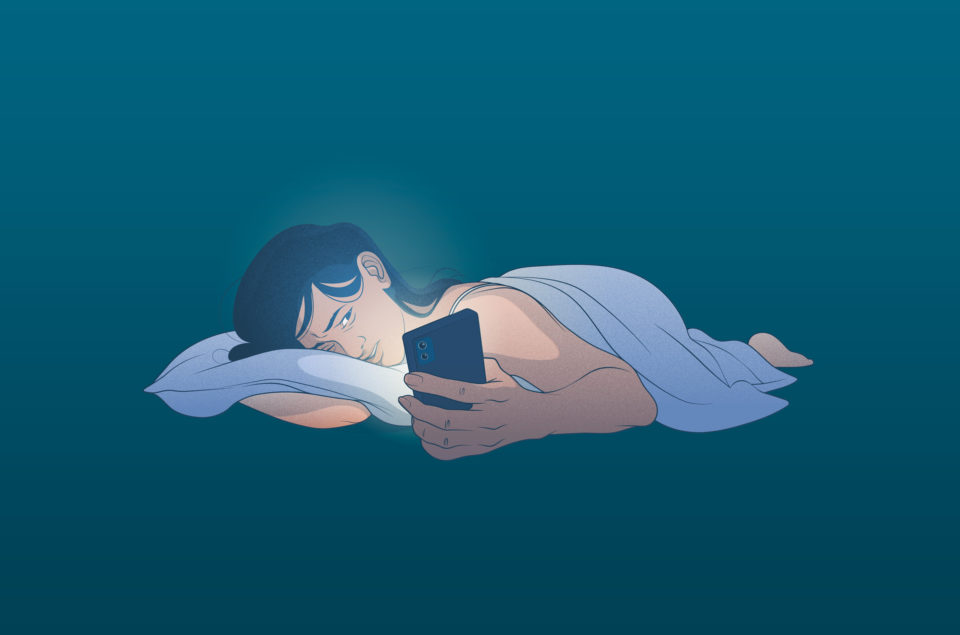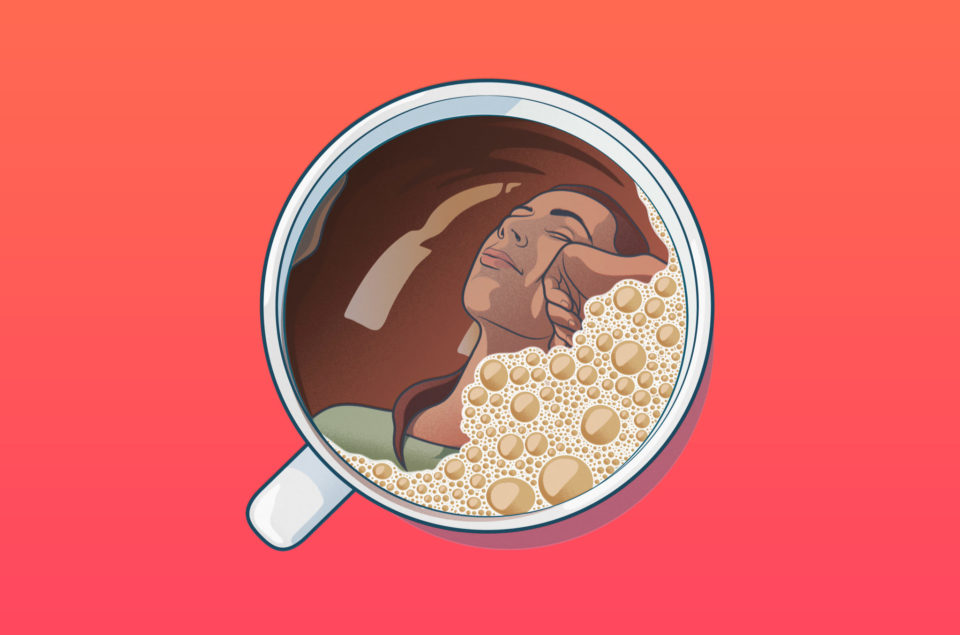Bipolar disorder is a condition that affects more than 1% of the world’s population, and approximately 4.4% of U.S adults have experienced bipolar episodes at some point in time. Those suffering from bipolar disorder will bear witness to how severely it can restrict them, as it’s distinguished by extreme shifts in mood and energy levels. The severity of these fluctuations becomes an impediment to functioning well in everyday life.
Sleep plays a critical role across all phases of bipolar disorder and there’s a bi-directional relationship between sleep and this chronic condition. Sleep can be a symptom of bipolar disorder, yet disrupted sleep can also trigger or worsen bipolar symptoms – such as manic or depressive episodes – at the same time. We take a closer look at the role of sleep (or lack of it) in the different phases of bipolar disorder.
In this article, we’ll cover:
- A quick look at bipolar disorder
- Bipolar Disorder and sleep – What’s the connection?
- Bipolar disorder and the circadian rhythm
- Best sleep schedules for individuals with bipolar disorder
- Summary FAQs
What is Bipolar Disorder?
Bipolar disorder is a mental illness where an individual can go through interchanging swings of intensely uplifted, ‘high’ moods – manic episodes – and severely ‘low’ and depressed moods – depressive episodes. Bipolar symptoms can often develop between the age of 15 and 19, but rarely after the age of 40. Some individuals may only suffer a few episodes in a lifetime and others more frequently.
There are three main variants included in bipolar disorder:
- Bipolar I disorder – mainly consists of intense manic episodes that last at least a full week, during the whole day. Depressive episodes can also occur, as can a mix of the two.
- Bipolar II disorder – mainly consists of depressive episodes. The manic episodes that occur are less intense than in bipolar I.
- Cyclothymic disorder – manic and depressive episodes occur repeatedly but without the intensity or length as in bipolar I and II disorders.
Bipolar disorder and sleep – What’s the connection?
As stated above, impaired sleep is a core symptom of bipolar disorder, but a disrupted circadian rhythm can also be a trigger. Looking at sleep patterns, therefore, is an integral part of forming a diagnosis for bipolar disorder, as manic episodes typically come with a reduced need for sleep and long periods of wakefulness. Studies show 69%- 99% of bipolar patients reported a reduced need for sleep during manic episodes. Similarly, depressive episodes are paired with periods of insomnia and daytime sleepiness. Regardless of how sleep manifests itself – sleep disturbance is prevalent across all phases of bipolar disorder.
Bipolar disorder and insomnia
Insomnia is a common manifestation for the manic and depressive episodes that follow with bipolar disorder. Studies show that when comparing bipolar patients with varying sleep times, those who clock in fewer hours (i.e. short sleepers) were more likely to exhibit symptoms of mania, depression, anxiety and mood swings.
Thus, applying sleep as treatment becomes necessary for bipolar disorder patients across all phases – as insomnia is decidedly prevalent across all these stages.
Can impaired sleep predict manic episodes?
Insomnia can also seep into the period of time in between these episodes, referred to as the ‘interepisode periods’. The state of how a patient is sleeping during these in-between periods can form a reliable indicator (a prodrome) for major episodes that may be coming. So for example, someone experiencing a reduced need for sleep and an intense period of wakefulness can be experiencing the first phase of a manic episode.
The same is true for hypersomnia (excessive daytime sleepiness and longer nighttime sleep) as this can be the first sign of a depressive episode.
Bipolar disorder and the circadian rhythm
Bipolar disorder is closely linked to individuals’ circadian rhythm. In a comprehensive review of 42 studies involving over 3400 bipolar disorder patients, disruption of the circadian rhythm was identified. Moreover:
- Individuals who have bipolar disorder also show a circadian genetic predisposition, essentially circadian genes, that make them more vulnerable to bipolar disorder.
- The synchronization of the body’s biological clock and external time cues, such as the dark-light cycle tends to be weaker for those with bipolar disorder.
- One study showed disrupted social rhythm regularity (day-to-day variability of daily routines, often linked to circadian rhythm) links to shorter times between manic and depressive episodes.
The results support the hypothesis that treatment involving targeting circadian rhythms could also reduce the severity and frequency of bipolar disorder episodes.
Sleep during manic phases
Sleep during manic phases of bipolar disorder often shows longer times lying awake in bed. Technology that tracks time awake vs. time asleep in bed, such as the ‘sleep efficiency’ indicator in Sleep Cycle’s app is a useful way to measure this pattern over time. Sleep during manic episodes is further characterized by:
- Insomnia. The lack of sleep also serves as a diagnostic tool for identifying bipolar disorder.
- A greater percentage of stage one sleep – this is the first stage of sleep, when you’re essentially ‘dozing off’. It’s a light sleep stage and not as restorative as deep sleep. It’s also a stage where it’s easier to wake up.
- Reaching REM sleep sooner and increased REM density (increased eye movement during the REM sleep phase. )
- Shorter total sleep time and less time in deep sleep, which is crucial for feeling rested and restored.
Sleep during depressive phases
Sleep in depressive phases on the other hand manifests itself in hypersomnia and excessive daytime sleepiness and often an increased need for more sleep. Furthermore during depressive phases:
- There’s a greater frequency of awakenings.
- REM sleep latency is reduced and REM density is increased, similar to manic phases.
Best sleep schedules and sleep treatments for individuals with bipolar disorders
As previously mentioned, individuals with bipolar disorder are prone to circadian rhythm disruption. As such, a one-size-fits-all approach is likely to fail. Yet there are a few measures that can be taken as a first step to treating sleep disorders when working with bipolar individuals:
- Regularity is seen as key to improving sleep. Encouraging patients to keep to regular bedtimes and wake-up times is therefore critical.
- Stimulus Control is a Cognitive Behavioral Therapy for Insomnia (CBTI), an intervention that is often applied. The idea is to create a strong association between bedroom and sleep and involves four key techniques:
- Bedroom is only for sleep and sex
- Only go to bed when feeling sleepy
- Leaving the bedroom if you can’t fall asleep
- Regular wake-up time EVERY morning
- Sleep Restriction is another CBTI intervention with the intention of increasing ‘sleep efficiency’ and removing time in bed where you’re not sleeping as it can promote insomnia further. This involves keeping a sleep diary, so the patient can track the amount of time in bed vs time actually asleep. Smartphone technology, as mentioned above, can do this for you. If the individual is only sleeping 6 hours on average, but spending eight hours in bed, the therapy in the initial phase, will allow only a six-hour sleep window. The duration of this ‘sleep window’ is then reviewed weekly to increase when appropriate.
- Monitoring mood and manic and depressive phases regularly in conjunction with the sleep schedule and treatment that is being administered.
Attention to sleep hygiene and being mindful of healthy sleep habits is invaluable regardless of the sleep treatment that’s applied.
Bipolar disorder is a chronic condition and a debilitating mental illness, which at its core is linked to impaired sleep. There are also several compelling lines of evidence that speak to sleep contributing to relapse in bipolar disorder. Treating insomnia, therefore, is essential when looking to alleviate the symptoms of bipolar disorder and keeping manic and depressive episodes at bay.
Summary FAQs
Why do people with bipolar have insomnia?
Impaired sleep is a core symptom of bipolar disorder, but a disrupted circadian rhythm can also be a trigger. Manic episodes typically come with a reduced need for sleep and long periods of wakefulness and hyper-awareness.
Can lack of sleep bring on manic episodes?
Yes. Someone experiencing a reduced need for sleep and an intense period of wakefulness can be experiencing the first phase of a manic episode.
How does bipolar disorder affect circadian rhythm?
Individuals with bipolar disorder show a circadian genetic predisposition that make them more vulnerable to the condition. This is manifested in insomnia or longer times awake during manic phases and in hypersomnia and excessive daytime sleepiness during depressive phases.
How to sleep when manic?
Although one-size-fits-all approach is likely to fail, there are a few measures that can be taken to improve sleep during a manic phase: keep a sleep routine and regular bedtimes and wake up times, stay out of bed when you’re not sleeping, monitor your mood and avoid naps, caffeine or stimulants in the evening.
